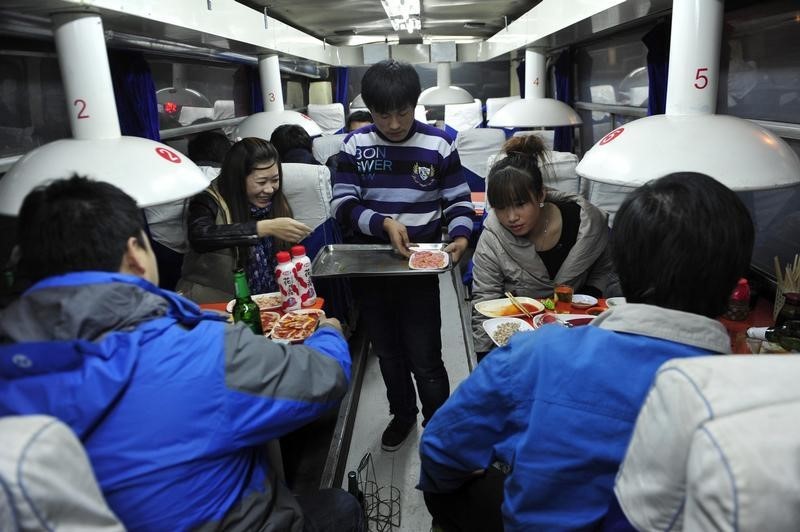By Gina Lee
Investing.com – China's factory inflation fell to the slowest annual pace in eight months in February 2022, thanks to the seasonal effects of the Lunar New Year holiday. However, investors expect it to rise in the coming months as global commodity prices also rise.
National Bureau of Statistics (NBS) data released earlier in the day showed that the producer price index grew 8.8% year-on-year. This was higher than the 8.7% growth predicted in forecasts prepared by Investing.com but lower than the 9.1% growth recorded during the previous month.
The consumer price index (CPI) grew 0.6% month-on-month, higher than the 0.3% growth predicted in forecasts prepared by Investing.com and the 0.4% growth recorded during the previous month. The CPI grew 0.9% year-on-year.
Consumer prices rose slightly from January due to the Lunar New Year and fluctuations in international energy prices but were generally stable compared with the same period in 2021, NBS senior statistician Dong Lijuan said in a statement. Producer prices rose from January due to the rising cost of international commodities such as crude oil and non-ferrous metals, the statement added.
The Lunar New Year holiday in February meant that many Chinese factories were closed and meant lower demand for raw materials. However, the conflict in Ukraine is raising concerns about supply disruptions, pushing energy and global commodities prices to decade-highs.
"The surge in global commodity prices following Russia's invasion of Ukraine will have a much more pronounced impact on the March figures," Capital Economics Senior China Economist Julian Evans-Pritchard told Reuters.
China's attempts to stabilize commodity prices are facing new challenges. These include high coal, natural gas, and iron ore prices thanks to COVID-19, a monetary policy shift in big economies, and geopolitical conflicts, an official at the state economic planner said on Monday.
The scope for monetary easing may be limited due to the threat of higher commodity prices, according to some investors.
"Sanctions on Russia could axe China-Russian trade activities and may lead to higher imported prices," China Renaissance Securities Head of Macro and Strategy Research Bruce Pang told Reuters.
"Surging commodities prices could fuel China's PPI inflation and limit China's space of monetary easing."
The country is targeting a 2022 CPI target of 3% on Saturday, unchanged from 2021’s target.
